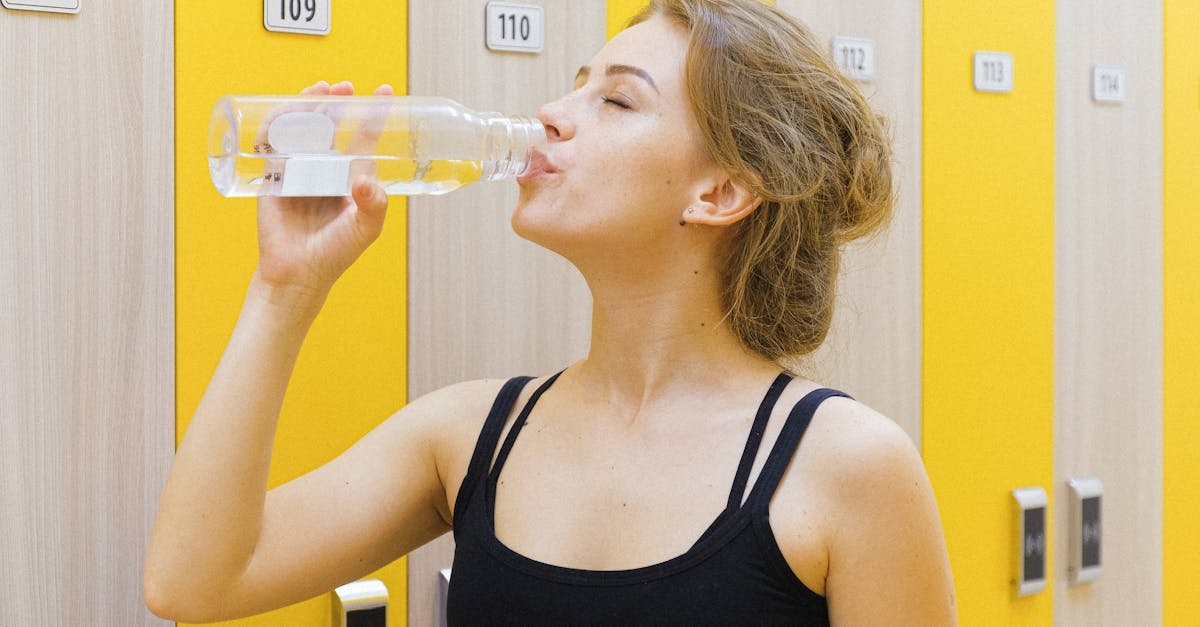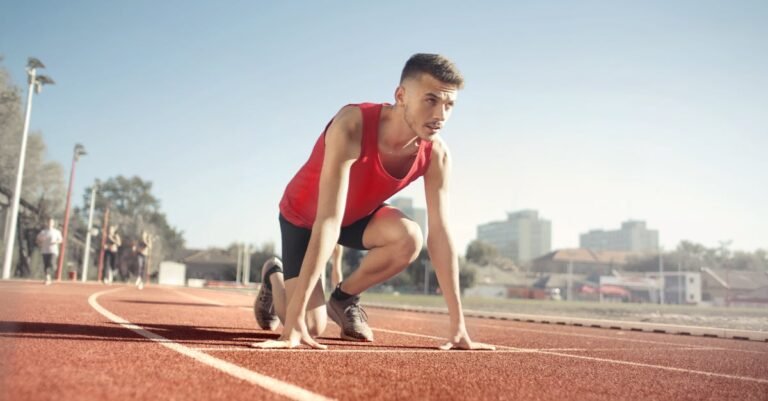Hydration Guide: Why Water Is Key For Fitness
Introduction: More Than Just Quenching Thirst
Alright, let’s talk about something fundamental, something we often take for granted until that dry mouth hits mid-workout: water. We all know we need it to survive, but when you’re pushing your body through exercise, water isn’t just about survival; it’s about thriving. It’s the unsung hero of your fitness journey, playing a role far more significant than simply wetting your whistle. Think of it less like putting out a fire (thirst) and more like ensuring the entire engine (your body) is running smoothly, efficiently, and powerfully.
What Exactly is Hydration?
So, what do we mean when we talk about “hydration”? At its core, hydration is simply the process of maintaining the right amount of water in your body. Sounds simple, right? But it’s a delicate balancing act. Our bodies are roughly 60% water, give or take. This isn’t just sloshing around; it’s actively involved in nearly every single bodily function. From lubricating joints to powering muscle contractions, water is the ultimate multitasker. Being properly hydrated means having enough fluid available for all these crucial jobs to happen without a hitch. It’s about keeping the internal environment optimal, ensuring that cells, tissues, and organs can function at their peak.
Why Fitness Enthusiasts Really Need to Pay Attention
If you’re someone who regularly exercises, whether you’re a weekend warrior, a dedicated gym-goer, or a competitive athlete, your relationship with water needs to be rock solid. Why? Because exercise cranks up the demand for water significantly. You sweat more, you breathe harder (losing moisture with each breath), and your metabolic processes are firing on all cylinders, all of which deplete your body’s water reserves much faster than sitting on the couch. Ignoring hydration isn’t just inconvenient; it’s actively sabotaging your performance, hindering recovery, and even putting your health at risk. Paying close attention to your fluid intake isn’t optional; it’s a cornerstone of effective training and achieving your fitness goals.
The Science Bit: How Water Fuels Your Body During Exercise
Let’s peek under the hood and see exactly how water works its magic when you’re getting your sweat on. It’s not just about feeling refreshed; there’s some serious science happening behind the scenes.
Regulating Your Internal Thermostat: The Cooling Power of Sweat
Ever wondered why you start dripping after a few minutes of intense activity? That’s your body’s brilliant cooling system kicking into gear, and water is the key ingredient. When you exercise, your muscles generate a ton of heat. If that heat builds up too much, your core body temperature could rise to dangerous levels. To prevent overheating, your body releases sweat onto the surface of your skin. As this sweat evaporates, it takes heat with it, effectively cooling you down. Think of it like your body’s personal air conditioning unit. But here’s the catch: sweating means losing water. If you don’t replace that lost fluid, your cooling system becomes less efficient, your core temperature can creep up, and your performance will suffer. Staying hydrated ensures you have enough fluid available to produce the sweat needed to keep your internal thermostat in check.
Nutrient Transport and Waste Removal: Water’s Delivery Service
Water is the ultimate transport medium within your body. It’s the primary component of blood plasma, which acts like a super-efficient delivery service, carrying vital supplies to your working muscles and hauling away the metabolic trash.
Oxygen Delivery: Keeping Muscles Happy
Your muscles need a constant supply of oxygen to produce energy during exercise. Oxygen travels through your bloodstream, bound to red blood cells, all suspended within that watery plasma. When you become dehydrated, your blood volume decreases. This makes your blood thicker and harder for your heart to pump effectively. The consequence? Reduced blood flow to your muscles, meaning less oxygen gets delivered. Less oxygen equals less energy production, leading to fatigue setting in much faster. Keeping hydrated ensures optimal blood volume, allowing for efficient oxygen transport and keeping those muscles fueled and happy.
Clearing Out the Junk: Lactic Acid and More
Exercise inevitably produces metabolic byproducts, like lactic acid and carbon dioxide. While some lactic acid is actually used for fuel, excessive buildup contributes to that muscle burn and fatigue. Adequate hydration helps maintain good blood flow, which is crucial for efficiently transporting these waste products away from the muscles to be processed and eliminated by the liver and kidneys. Think of it like flushing the system. Dehydration slows down this waste removal process, potentially leading to faster fatigue and prolonged muscle soreness after your workout.
Joint Lubrication and Shock Absorption: Keeping You Moving Smoothly
Imagine trying to move rusty gears – not smooth, right? Your joints need lubrication to move freely and efficiently, and water plays a huge role here. Synovial fluid, the slippery substance that cushions and lubricates your joints (like your knees, hips, and shoulders), is largely composed of water. Proper hydration helps maintain the optimal consistency and volume of this fluid, allowing your joints to glide smoothly and absorb shock effectively during high-impact activities like running or jumping. When you’re dehydrated, this fluid can become less effective, potentially increasing friction within the joint, leading to discomfort, and possibly increasing your risk of injury over time. Staying hydrated is like giving your joints a much-needed oil change, ensuring they can handle the demands of your workout.
The Downside: What Happens When You’re Dehydrated?
Okay, we’ve talked about the benefits of staying hydrated. But what happens when you fall short? It’s not pretty. Even mild dehydration, losing just 1-2% of your body weight in fluid, can start to negatively impact your fitness efforts and overall well-being.
Performance Nosedive: Strength, Speed, and Stamina Suffer
This is often the first thing athletes notice. Dehydration directly impacts your physical capabilities. Remember how dehydration reduces blood volume and oxygen delivery? This directly translates to reduced aerobic capacity – your ability to sustain activity. Your heart has to work harder to deliver the same amount of oxygen, leading to a higher heart rate for the same intensity level. Muscle endurance decreases, meaning you fatigue faster. Studies have shown dehydration can significantly reduce strength output, running speed, and overall stamina. That extra rep, that faster split time, that last push – they all become significantly harder, if not impossible, when your body is crying out for water.
Increased Risk of Injury: Cramps, Strains, and Worse
Dehydration throws your body’s delicate balance off-kilter, making you more susceptible to various exercise-related issues. Muscle cramps are a common complaint, often linked to fluid and electrolyte imbalances exacerbated by dehydration. Reduced blood flow can impair muscle function and coordination, potentially increasing the risk of strains and sprains. In more severe cases, significant dehydration, especially when combined with exercising in hot conditions, can lead to heat exhaustion or even life-threatening heatstroke. Proper hydration is a crucial preventative measure, helping to maintain electrolyte balance and optimal muscle function.
Cognitive Fog: Decision Making and Focus Take a Hit
It’s not just your muscles that suffer; your brain feels the effects of dehydration too. Your brain needs adequate hydration to function optimally. Dehydration can impair concentration, slow down reaction time, affect mood (hello, irritability!), and hinder decision-making abilities. During exercise, this can be particularly detrimental. Whether it’s making a split-second decision in a team sport, maintaining focus during a long run, or ensuring proper form during weightlifting to prevent injury, cognitive function is critical. Staying hydrated helps keep your mind sharp and focused, enhancing both performance and safety.
Your Personal Hydration Plan: How Much Water Do You Actually Need?
So, you’re convinced – hydration is crucial. But how much water do you actually need? The answer, frustratingly for some, is: it depends. There’s no single magic number that fits everyone.
Beyond the “8 Glasses a Day” Myth
You’ve probably heard the old advice: “Drink eight 8-ounce glasses of water a day.” While it’s a decent starting point for a sedentary person in a temperate climate, it’s often insufficient for active individuals. It doesn’t account for the significant fluid losses that occur during exercise or the many other factors that influence hydration needs. Think of it as a very general guideline, not a strict rule, especially if fitness is part of your life.
Factors Influencing Your Needs (Activity, Climate, Body Size)
Your individual water requirements are influenced by a cocktail of factors:
- Exercise Intensity and Duration: The harder and longer you work out, the more you sweat, and the more fluid you need to replace. A gentle walk requires less hydration than a marathon.
- Climate and Temperature: Hot and humid conditions drastically increase sweat rates, demanding significantly higher fluid intake. Even cold, dry air can increase respiratory water loss.
- Body Size and Composition: Larger individuals generally require more water than smaller individuals. Muscle tissue holds more water than fat tissue.
- Altitude: Higher altitudes can increase fluid loss through respiration and urine output.
- Individual Sweat Rate: Some people are naturally heavier sweaters than others. You can get a rough idea by weighing yourself before and after a workout (accounting for any fluid consumed during). Each kilogram (or ~2.2 lbs) lost roughly equates to a litre of fluid deficit.
- Overall Health and Diet: Certain health conditions and medications can affect fluid balance. Your diet also contributes – fruits and vegetables have high water content.
The best approach is to listen to your body, monitor the color of your urine (aim for pale yellow), and be mindful of thirst signals, although thirst often kicks in *after* you’re already slightly dehydrated.
Practical Tips: How to Stay Hydrated Before, During, and After Workouts
Developing a hydration strategy around your workouts is key. Don’t wait until you’re parched!
Pre-Workout Hydration Strategy
Start your workout properly hydrated. Don’t try to chug a gallon right before you start – that will likely lead to discomfort. Instead, focus on steady fluid intake throughout the day leading up to your session. Aim to drink about 500ml (around 17 ounces) of water 2-3 hours before exercise, and perhaps another 200-300ml (7-10 ounces) 10-20 minutes before you begin. This allows your body time to absorb the fluid and void any excess.
Sipping Smart During Exercise
The goal during exercise is to replace fluids as you lose them, preventing excessive dehydration. Don’t wait until you’re thirsty. For workouts lasting longer than 30-45 minutes, aim to sip fluids regularly. A general guideline is 150-250ml (about 5-8 ounces) every 15-20 minutes. Adjust this based on intensity, duration, and conditions. Small, frequent sips are usually better tolerated than large gulps, which can cause stomach sloshing.
Rehydrating Post-Workout
Replenishing fluids after exercise is crucial for recovery. Your body needs water to repair muscle tissue, replenish glycogen stores, and restore overall fluid balance. A good rule of thumb is to drink 1.25 to 1.5 times the amount of fluid weight you lost during the workout within the first few hours post-exercise. For example, if you lost 1kg (2.2 lbs), aim to drink 1.25-1.5 litres of fluid. Continue sipping fluids throughout the rest of the day.
Water vs. Sports Drinks: When is Plain Water Enough?
Walk down the beverage aisle, and you’re bombarded with colourful sports drinks promising enhanced performance and rapid rehydration. But do you always need them? When is good old-fashioned water sufficient?
The Role of Electrolytes
The main difference between water and sports drinks lies in electrolytes (like sodium, potassium, magnesium) and carbohydrates (sugars). Electrolytes are minerals lost through sweat that are vital for nerve function, muscle contractions, and maintaining fluid balance. Carbohydrates provide energy.
When you sweat heavily, especially for prolonged periods (typically over 60-90 minutes) or in very hot conditions, you lose significant amounts of both water and electrolytes, particularly sodium. Replacing only water in these situations can dilute the remaining electrolytes in your body, potentially leading to a dangerous condition called hyponatremia (low blood sodium). This is where sports drinks can be beneficial.
Making the Right Choice for Your Workout
Here’s a simple guide:
- For workouts under 60 minutes: In most cases, plain water is perfectly adequate for hydration. Your body typically has enough stored glycogen for energy, and electrolyte losses are usually not significant enough to warrant replacement during the workout itself.
- For high-intensity or long-duration workouts (over 60-90 minutes): Especially in hot weather, a sports drink containing electrolytes and carbohydrates can be beneficial. The electrolytes help replace what’s lost in sweat and aid fluid absorption, while the carbs provide a readily available energy source to fuel continued performance and delay fatigue.
- Very heavy sweaters: Even for shorter workouts, if you know you lose a lot of salt in your sweat (look for white crusty stains on your clothes or skin), you might benefit from an electrolyte drink or adding an electrolyte tab to your water.
Listen to your body and consider the specific demands of your workout and the environmental conditions. Don’t just grab a sugary sports drink for a 30-minute jog out of habit; water is often the best choice.
Conclusion: Make Hydration Your Fitness Ally
So there you have it. Water isn’t just a passive bystander in your fitness journey; it’s an active, essential participant. From regulating your temperature and transporting vital nutrients to lubricating your joints and keeping your mind sharp, proper hydration underpins nearly every aspect of physical performance and recovery. Ignoring it means leaving potential gains on the table and increasing your risk of fatigue, poor performance, and injury. By understanding your individual needs, planning your fluid intake around your workouts, and making smart choices about *what* you drink, you can transform hydration from an afterthought into one of your most powerful fitness allies. Make friends with your water bottle – your body will thank you for it!
Frequently Asked Questions (FAQs)
1. Can I drink too much water?
Yes, although rare for healthy individuals, it’s possible to drink excessive amounts of water very quickly, especially without adequate electrolyte intake. This can lead to hyponatremia (dangerously low sodium levels). It’s more common in endurance events where athletes overcompensate for sweat loss with plain water. Stick to recommended guidelines and listen to your body.
2. Does coffee or tea count towards my daily hydration?
Yes, they can contribute! While caffeine has a mild diuretic effect (makes you pee more), the fluid volume in caffeinated beverages like coffee and tea generally outweighs this effect, contributing positively to your overall hydration status, especially if consumed in moderation.
3. How can I tell if I’m dehydrated besides being thirsty?
Thirst is a late indicator. Better signs include dark yellow urine, infrequent urination, headache, fatigue or lethargy, dizziness, dry mouth or skin, and muscle cramps. Monitoring urine color is a simple, practical way to gauge hydration status throughout the day.
4. Are there foods that can help with hydration?
Absolutely! Many fruits and vegetables have high water content and contribute to your daily fluid intake. Examples include watermelon, strawberries, cucumber, celery, oranges, lettuce, and bell peppers. Including these in your diet complements your water intake.
5. Do I need to worry more about hydration as I get older?
Yes, the sensation of thirst can diminish with age, meaning older adults might not feel thirsty even when their body needs fluids. Additionally, kidney function can change. Therefore, older adults, especially those who are active, should be particularly mindful of consuming fluids regularly throughout the day, even if they don’t feel thirsty.










